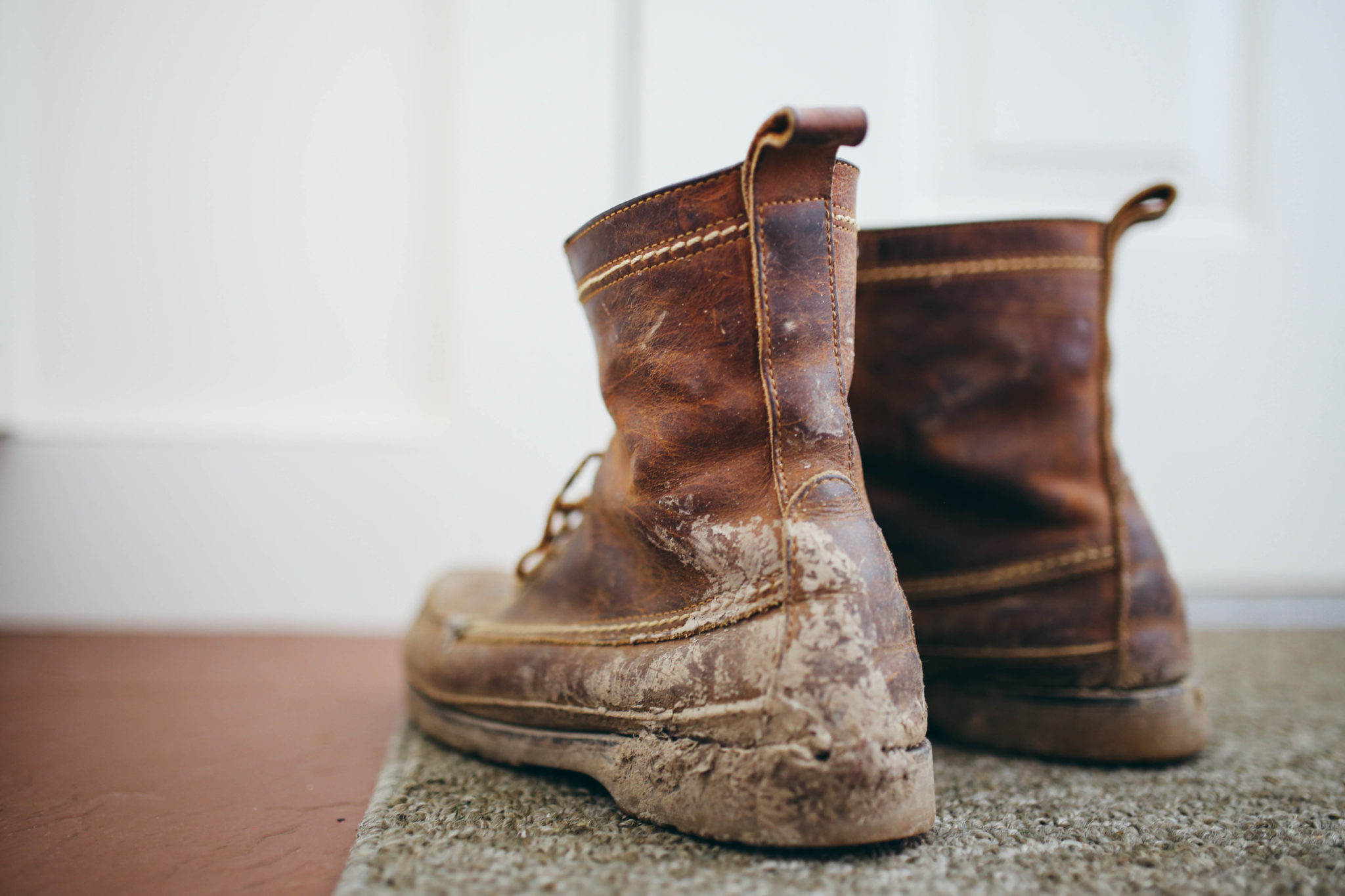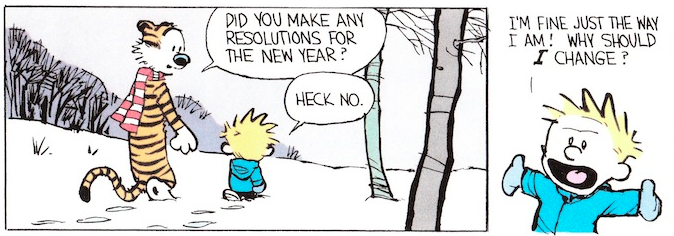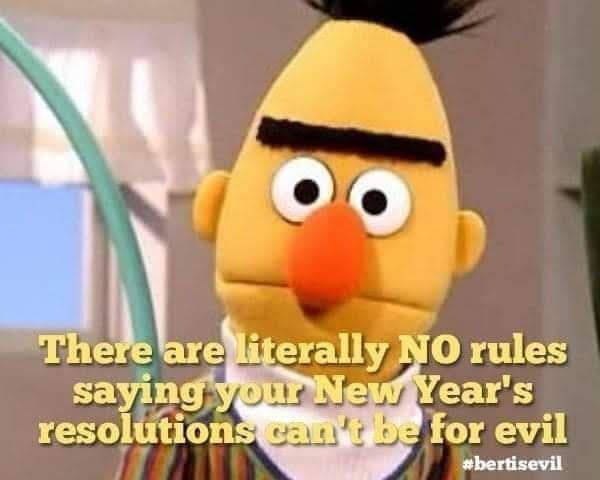
While a regular cadence for setting goals and a cultural movement to improve oneself are good, the once-a-year frenzy about New Year’s resolutions falls short of addressing the real factors that drive personal development.
Happy 2021! I think everyone’s hoping this year is better than 2020 (insert ‘lowest bar in the world’ joke here).
Given it’s a new year many conversations are ablaze with the topic of New Year’s Resolutions. And as you’ve probably surmised from the title, I don’t set New Year’s Resolutions.
No, it isn’t because of things like this Calvin and Hobbes comic strip about resolutions:

I don’t set New Year’s Resolutions because too often they seem thrown together with too little thought, and then too quickly they’re abandoned and life returns to normal. This defeats the purpose of a resolution for change.
Instead, I set small goals every week which support long-term plans in my own system extrapolated from Getting Things Done.[1]
I’m definitely not an expert at personal development, but I am a student of it. From Marcus Aurelius to Benjamin Franklin and beyond I’ve noticed a common thread of personal examination and self improvement. And while there’s certainly some survivorship bias involved here, improving one’s self is worth pursuing.
I intend to go into more of my thoughts and see how they evolve in future posts (which I’ve started in yesterday’s post called Kanamits and the Economy of the Mind), but for now I’ll just say that most resolution-setting in popular culture doesn’t take into account the work required to achieve the desired result, and resolutions without a plan for the work involved are almost always going to fail. Hence the image up top of muddy work boots.
To illustrate my thinking I’ve made some examples in this table:
| Goal | Bad Resolution | Better Resolution |
| Be more healthy | “Lose 20 lbs” | “Track calories via {app} and walk between dinner and watching TV” |
| Improve my financial situation | “Earn more money” | “Go for a month without buying {thing you want to cut back on, perhaps junk food?[2]} and ask for a raise at my next performance review” |
The ‘better resolutions’ are more tangible and concrete; specific changes are called out which makes measurement (and therefore motivation) easier, and habit changes are included (which helps the long term changes stick).
Of course, you still need to do the tangible, specific things but this gets you started more effectively in my experience.
So I hope this helps with your New Year’s Resolutions for 2021 and beyond.[3] Best of luck this year!
[1] David Allen came to Google in 2011 and taught an entire day class which I was able to join! I still have the pen he gave class members.
[2] Notice the opportunity for hitting two goals with one resolution.
[3] Saw this meme and figured I should specify: no evil resolutions!
